Unveiling the Jewel of Africa: Lake Malawi on the Map
Related Articles: Unveiling the Jewel of Africa: Lake Malawi on the Map
Introduction
With great pleasure, we will explore the intriguing topic related to Unveiling the Jewel of Africa: Lake Malawi on the Map. Let’s weave interesting information and offer fresh perspectives to the readers.
Table of Content
Unveiling the Jewel of Africa: Lake Malawi on the Map

Lake Malawi, also known as Lake Nyasa, is a captivating body of water nestled in southeastern Africa. It stretches for over 580 kilometers (360 miles) along the borders of Malawi, Mozambique, and Tanzania, making it the third-largest lake in Africa and the ninth-largest in the world. Its immense size and breathtaking beauty have earned it the moniker "The Calendar Lake," a tribute to its calendar-like appearance on a map.
A Glimpse into the Geography of Lake Malawi
Lake Malawi is a geological wonder, formed by the East African Rift Valley. It is a deep lake, with an average depth of 292 meters (958 feet) and a maximum depth of 706 meters (2,316 feet). This depth contributes to its unique ecosystem and the incredible biodiversity it harbors. The lake’s shores are lined with diverse landscapes, ranging from rugged mountains to lush wetlands, each offering a different perspective on its beauty.
The Significance of Lake Malawi
Lake Malawi is more than just a scenic landmark; it holds immense ecological, economic, and cultural significance.
Ecological Significance:
- Biodiversity Hotspot: Lake Malawi is renowned as a biodiversity hotspot, boasting over 1,000 species of cichlid fish, more than any other lake in the world. These colorful and diverse fish are a testament to the lake’s unique evolutionary history and provide a rich source of study for scientists.
- Water Source: The lake is a vital water source for millions of people in the surrounding region, providing drinking water, irrigation, and supporting fisheries.
- Habitat for Endangered Species: The lake’s waters are home to numerous endangered species, including the African lungfish, the Nile crocodile, and the African grey parrot. Conservation efforts are crucial to protect these vulnerable animals and their habitats.
Economic Significance:
- Tourism and Recreation: Lake Malawi is a popular destination for tourists, attracting visitors from around the world who seek to explore its diverse landscapes, enjoy water sports, and witness the beauty of its wildlife.
- Fisheries: The lake’s abundant fish populations support a thriving fishing industry, providing livelihoods for many communities in the region.
- Hydropower: The lake’s water resources are harnessed to generate hydroelectric power, contributing to the energy needs of Malawi and neighboring countries.
Cultural Significance:
- Traditional Communities: The lake’s shores have been home to diverse indigenous communities for centuries, each with unique cultural traditions and practices interwoven with the lake’s ecosystem.
- Spiritual Significance: The lake holds spiritual significance for many communities, often considered sacred and revered for its life-giving properties.
Exploring the Depths of Lake Malawi: A Journey Through its Ecosystem
The lake’s diverse ecosystem is a fascinating tapestry of life, with each element playing a crucial role in maintaining its delicate balance.
Aquatic Life:
- Cichlids: The most prominent inhabitants of Lake Malawi are the cichlid fish, known for their vibrant colors and diverse adaptations. These fish have evolved into specialized niches, feeding on algae, insects, or other fish, and exhibiting remarkable diversity in their breeding behaviors.
- Other Fish Species: Besides cichlids, the lake is home to a variety of other fish species, including catfish, tilapia, and lungfish, contributing to the lake’s rich biodiversity.
Flora and Fauna:
- Lake Malawi National Park: The shores of Lake Malawi are protected within the Lake Malawi National Park, a haven for diverse flora and fauna. The park encompasses a variety of habitats, including grasslands, woodlands, and wetlands, providing a sanctuary for a wide range of animals, including hippos, crocodiles, and various bird species.
- Mangrove Forests: In some areas, the shores are lined with mangrove forests, providing critical habitats for fish, birds, and other wildlife. These forests also play a vital role in protecting coastlines from erosion.
Challenges and Conservation Efforts
Despite its beauty and importance, Lake Malawi faces a number of challenges that threaten its ecosystem and the livelihoods of the people who depend on it.
- Pollution: Agricultural runoff, industrial waste, and sewage discharge are major sources of pollution, impacting water quality and harming aquatic life.
- Overfishing: Unsustainable fishing practices, including the use of illegal fishing gear, threaten the lake’s fish populations and disrupt the delicate balance of its ecosystem.
- Climate Change: Rising temperatures and changing rainfall patterns are impacting the lake’s water levels, altering its ecosystem and affecting its ability to support life.
To address these challenges, conservation efforts are underway to protect Lake Malawi and its surrounding environment. These efforts include:
- Sustainable Fishing Practices: Implementing regulations and promoting sustainable fishing practices to ensure the long-term health of fish populations.
- Pollution Control: Reducing pollution from agricultural runoff, industrial waste, and sewage by promoting responsible waste management practices.
- Environmental Education: Raising awareness about the importance of Lake Malawi and its ecosystem among local communities and promoting responsible environmental practices.
- Protected Areas: Expanding and strengthening protected areas, such as the Lake Malawi National Park, to safeguard the lake’s unique biodiversity.
FAQs about Lake Malawi
1. What is the best time to visit Lake Malawi?
The best time to visit Lake Malawi is during the dry season, from May to October, when the weather is sunny and clear, ideal for swimming, snorkeling, and diving.
2. What are the major attractions in Lake Malawi?
Some of the major attractions in Lake Malawi include:
- Lake Malawi National Park: A haven for diverse wildlife, including hippos, crocodiles, and a wide variety of bird species.
- Cape Maclear: A popular tourist destination with beautiful beaches, snorkeling opportunities, and a vibrant cultural scene.
- Nkhata Bay: Known for its stunning scenery, hiking trails, and relaxed atmosphere.
- Mangochi: A charming town with a rich history and cultural heritage, offering opportunities to explore local markets and traditional villages.
3. How can I get to Lake Malawi?
The easiest way to get to Lake Malawi is by flying into Lilongwe, the capital of Malawi, or Blantyre, the second-largest city. From there, you can take a bus or hire a taxi to reach the lake.
4. Is Lake Malawi safe for swimming?
Lake Malawi is generally safe for swimming, but it’s important to be aware of the potential for strong currents and to exercise caution when swimming in unfamiliar areas.
5. What are the best things to do in Lake Malawi?
Some of the best things to do in Lake Malawi include:
- Swimming and Sunbathing: Enjoy the warm waters and beautiful beaches.
- Snorkeling and Diving: Explore the underwater world and witness the incredible diversity of cichlid fish.
- Hiking and Trekking: Explore the surrounding hills and mountains, enjoying breathtaking views of the lake.
- Wildlife Viewing: Spot hippos, crocodiles, and a variety of bird species in their natural habitats.
- Cultural Experiences: Immerse yourself in the local culture by visiting traditional villages and markets.
Tips for Visiting Lake Malawi
- Pack Light: The weather in Lake Malawi is warm and humid, so pack light clothing and comfortable footwear.
- Bring Sunscreen: The sun can be strong, so be sure to bring sunscreen and wear a hat to protect yourself from the sun’s rays.
- Learn a Few Basic Chichewa Phrases: Knowing a few basic Chichewa phrases will help you communicate with locals and enhance your travel experience.
- Respect Local Customs: Be respectful of local customs and traditions.
- Support Local Businesses: Patronize local businesses and contribute to the local economy.
Conclusion
Lake Malawi is a captivating jewel in the heart of Africa, a testament to the power of nature and the importance of conservation. Its incredible biodiversity, breathtaking beauty, and cultural significance make it a destination that will leave a lasting impression on any visitor. By understanding the challenges facing Lake Malawi and supporting conservation efforts, we can ensure that this precious ecosystem continues to thrive for generations to come.
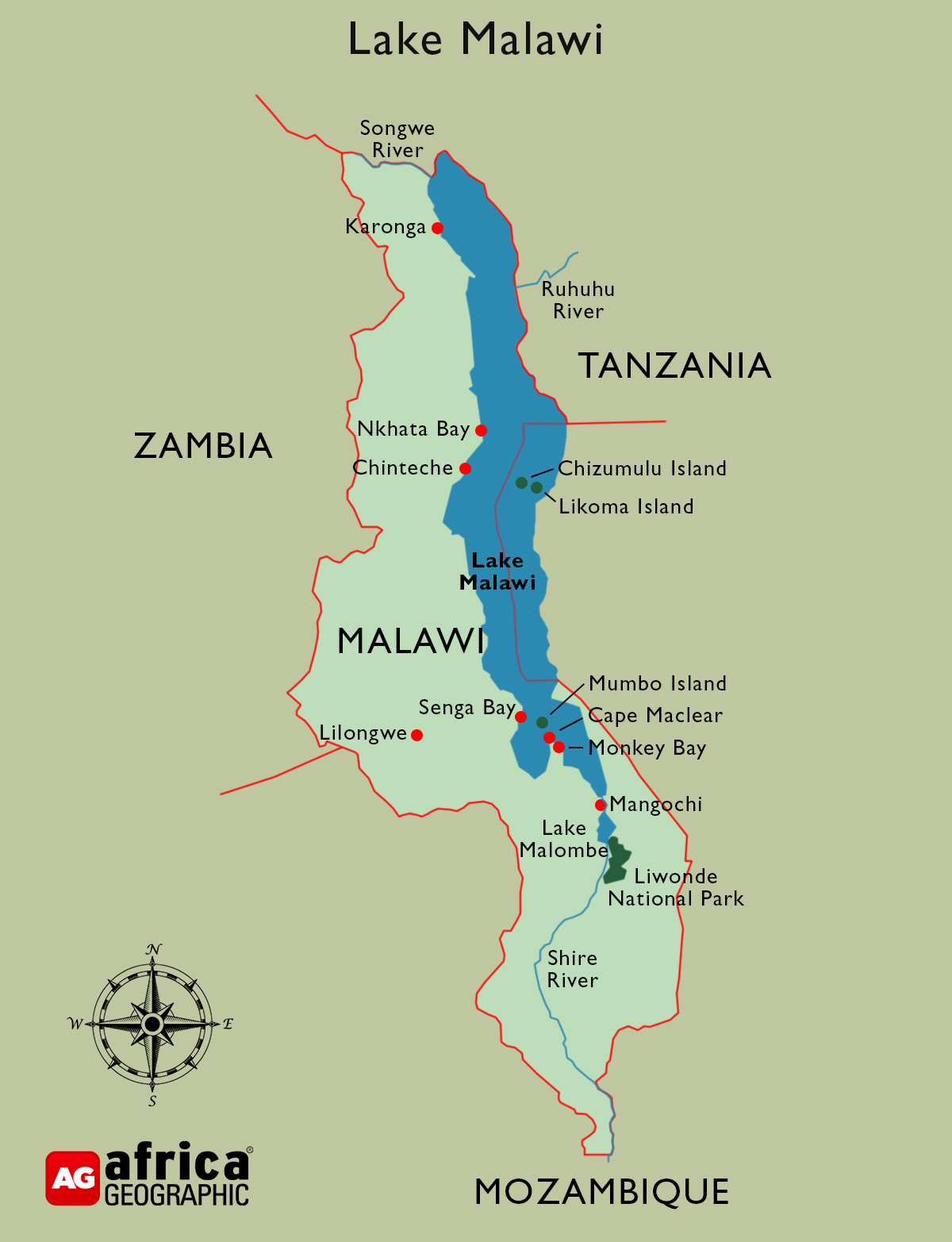
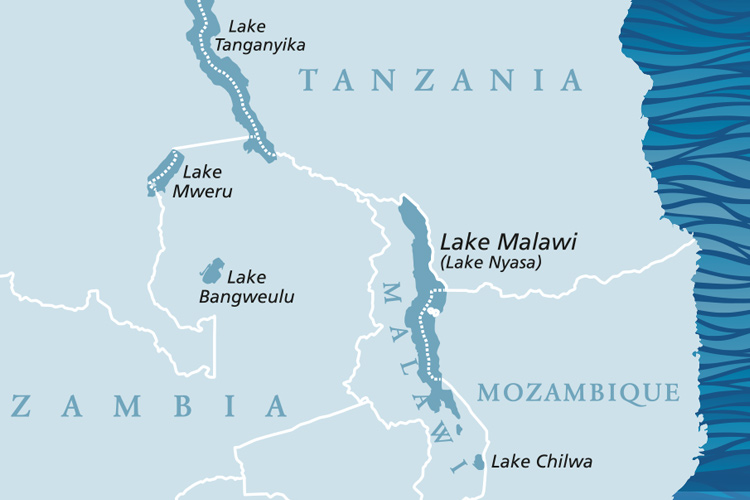
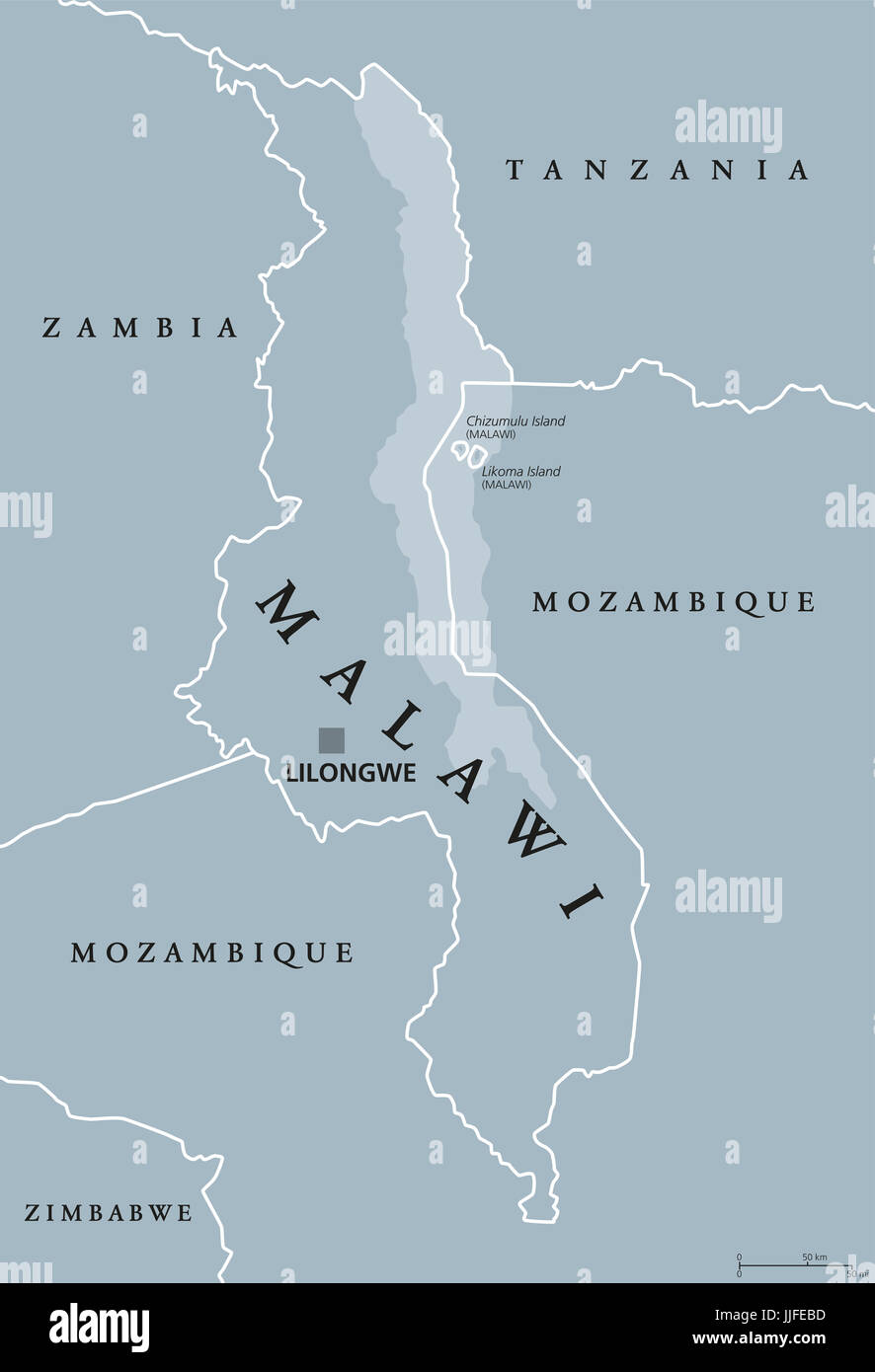

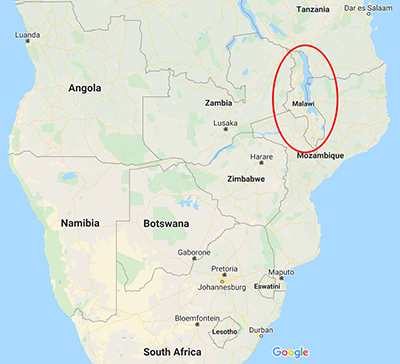
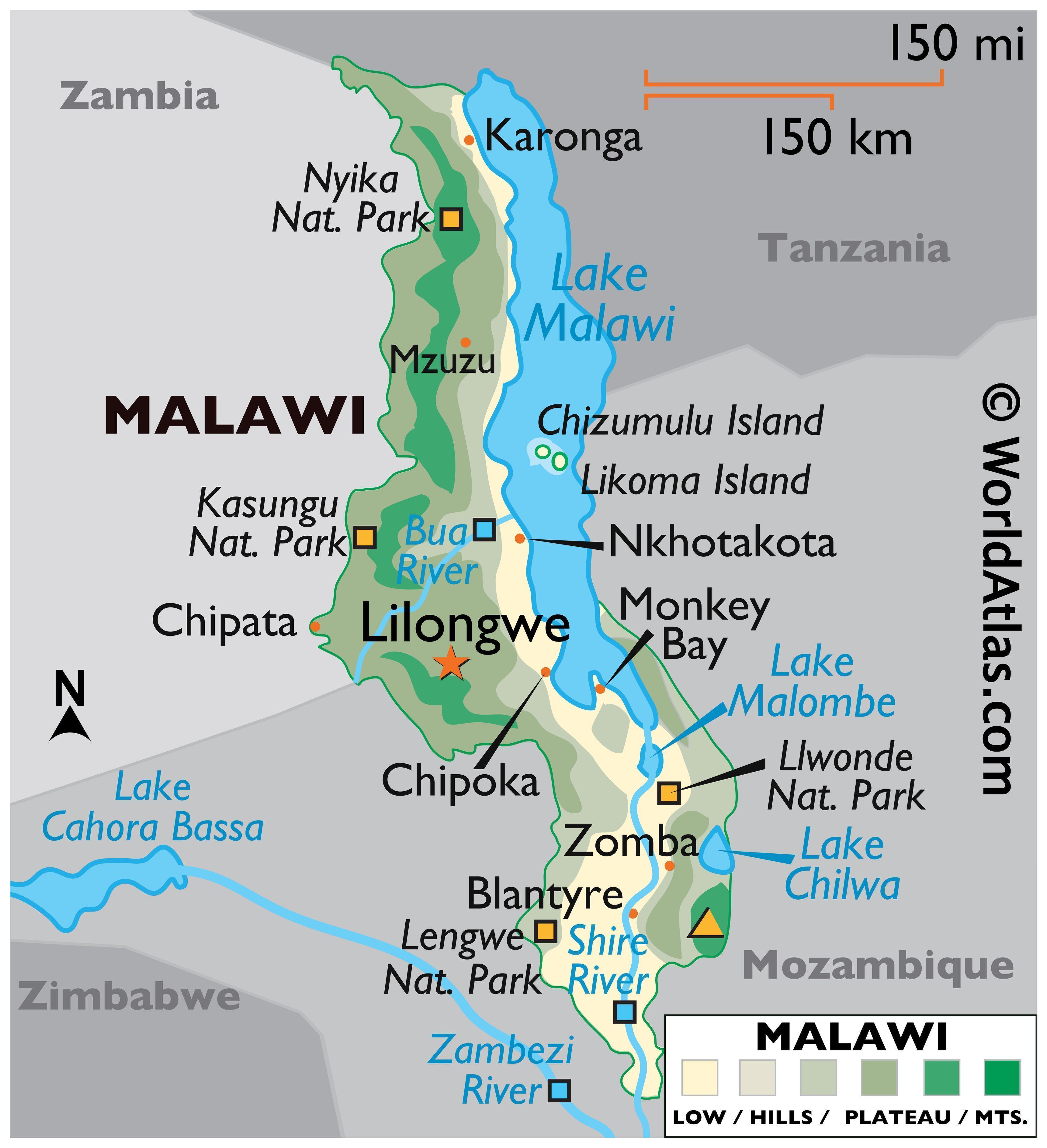

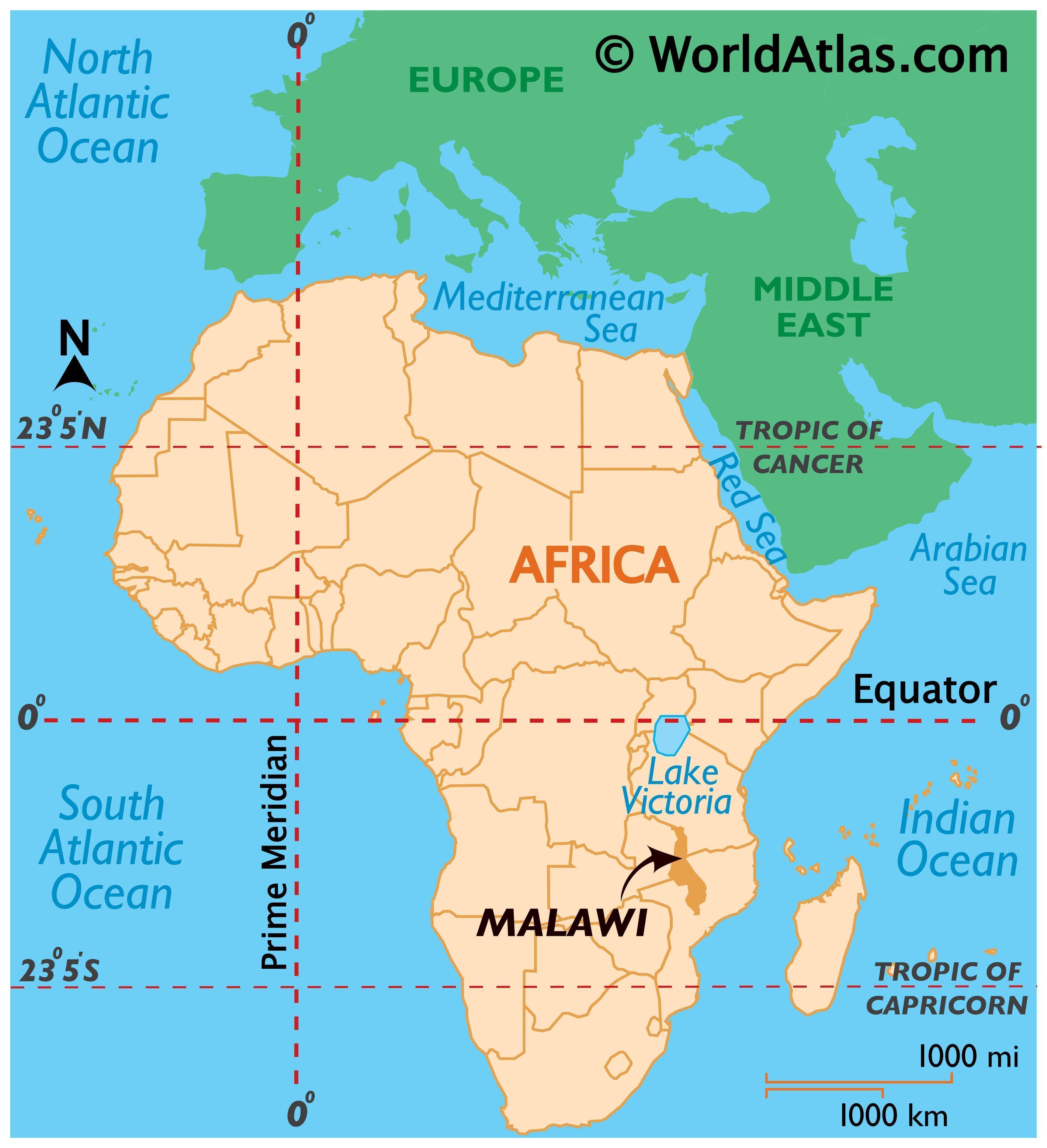
Closure
Thus, we hope this article has provided valuable insights into Unveiling the Jewel of Africa: Lake Malawi on the Map. We appreciate your attention to our article. See you in our next article!
